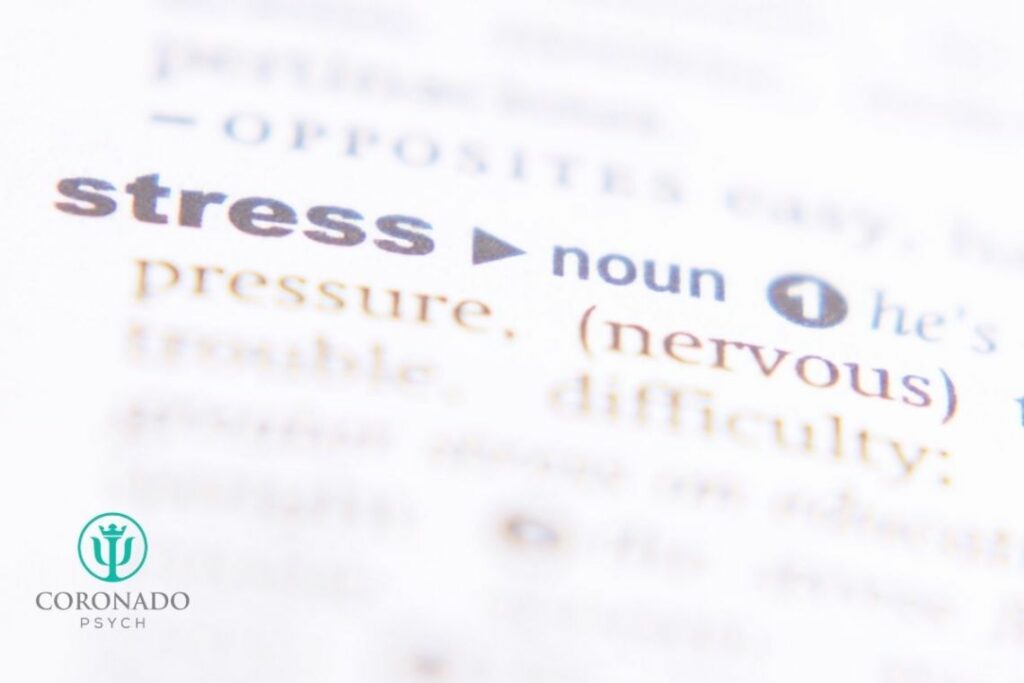Assessing our sources and symptoms of stress provides a useful framework for understanding our stressors and our abilities to cope. It may be daunting to try to “unpack” all of the ways in which we feel stressed. However, once we embark upon this task together, my clients often find that this process can provide some relief and improve confidence in their abilities to tackle their stress.
What are some sources of stress?
Becoming aware of our sources of stress can help us orient ourselves with our stressors in a way that can illuminate pathways for effective coping tailored to our unique struggles.

Stressors can range between everyday hassles (e.g. paying bills or running late to work) to major life events (e.g. divorce or death). They can also be negative events (e.g. losing job or being hospitalized) or even positive events (e.g. going on a trip or planning a wedding).
Stress can also come from many different domains in our lives, including work, health, finances, friends/family, or environment. By assessing our sources of stress, we can empower ourselves to better manage our stressors. For example, we may be more mindful about taking on new responsibilities at work or in our social lives to better manage our stress moving forward.
Symptoms of Stress

In addition to understanding the sources of our stress, we can also increase our awareness of the different symptoms of stress—where do we feel stress and how does this affect the way we think and feel?
Stress can lead to symptoms in three main areas:
1) Our physical reactions, including muscle tension and fatigue
2) Our thoughts, including excessive worry, feeling depressed/irritable, or difficulty remembering things
3) Our behaviors, including poor sleep, procrastination, and avoidance of various sources of stress.
Once we are aware of our unique sources and symptoms of stress, we can then begin to assess the potential need to do something different. For example, relaxation exercises may be useful in reducing physical symptoms, while challenging our automatic negative thoughts may work to relieve our excessive worries or depressed mood.
Is it Time for a Change?

If you find yourself struggling to manage your stress over many days or weeks, it may indicate that you might benefit from trying new coping strategies.
Similarly, if you find that you are facing the same stressors over and over again or you are feeling overwhelmed with all of the different kinds of stress you are experiencing, it might be time to try something new.
It’s important to note that often the goal of coping with stressors or building resilience is not to erase our sources and symptoms of stress. Effective coping is often focused on how well we manage our stress as it comes about.
By organizing our understanding of our stress into the various sources and symptoms, we can begin to make decisions about which strategies may work best to help cope. Psychotherapy is also an effective way to learn how to manage our sources and symptoms of stress.
If you are interested in learning more about how psychotherapy can help you manage your stress, please feel free to call or email us.

No Comments yet!